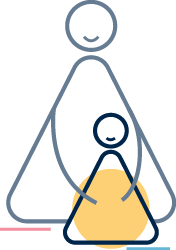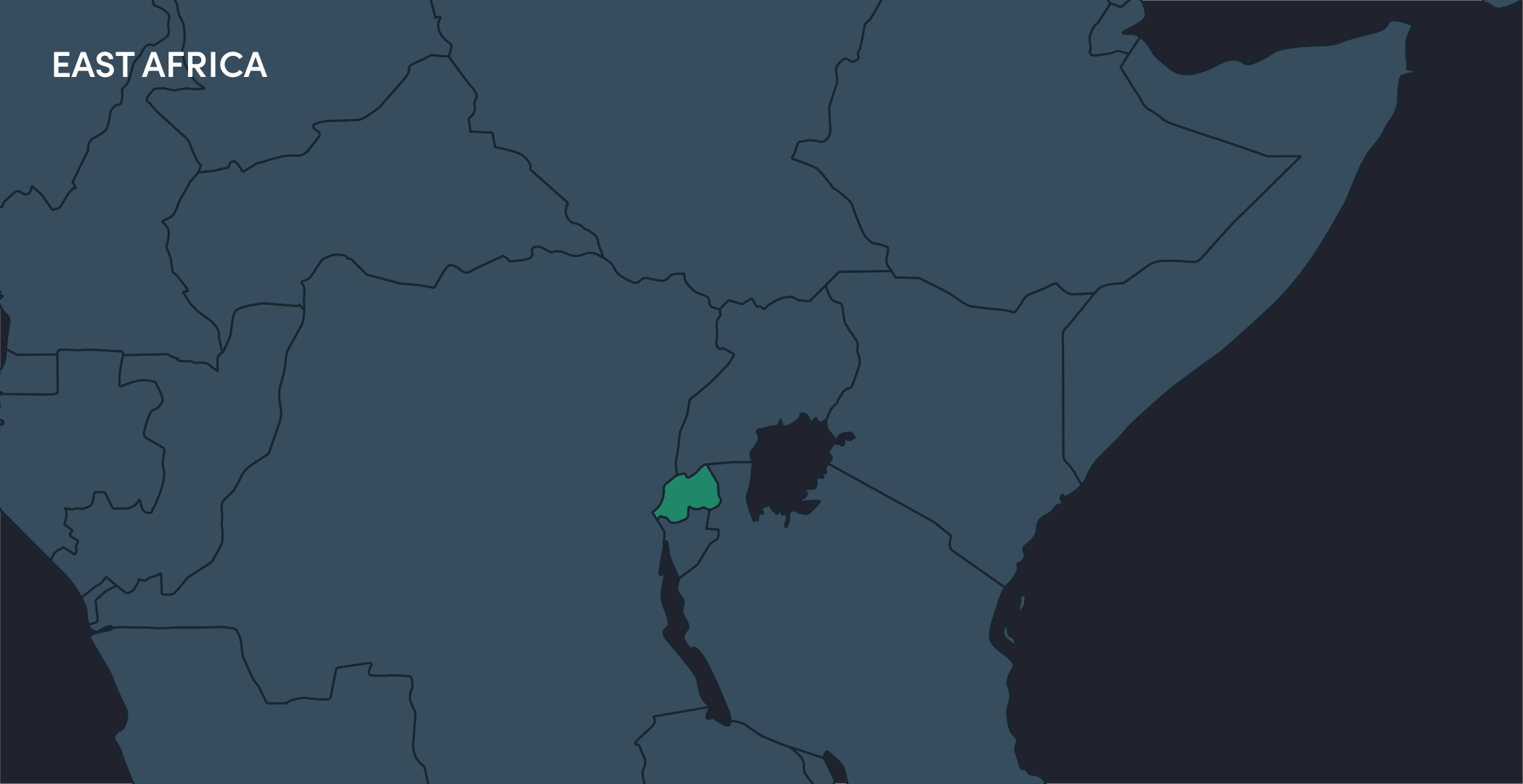Despite many successes in child health interventions in recent years, Rwanda continues to struggle with certain indicators affecting child health and well-being, including high rates of poverty (38%), high rates of stunting (38% of children under five are stunted), and high rates of family violence.
Compelling evidence shows that exposure to poverty and inadequate nutrition significantly contributes to poor child development outcomes in many low- and middle-income countries, with exposure between years 0 and 5 being most critical in predicting long-term outcomes. While less widely studied, harsh parenting practices, including frequent use of violent discipline, also poses a threat to child development and well-being.
Sugira Muryango is a home visiting program that uses active coaching of caregivers to promote responsive caregiving, play, nutrition, hygiene, nonviolent interactions, and father engagement. The program generated several positive outcomes:

NURTURING CARE AND FATHER ENGAGEMENT
Families enrolled in the intervention showed improvements in nurturing care, including greater sensitivity during interactions and improved home environment. Among families with a father in the household, father engagement also increased more in families receiving the intervention.

FAMILY VIOLENCE
In families receiving the intervention there was a significant decrease in the use of harsh discipline of children. Furthermore, there was a decrease in exposure to intimate partner violence, including a decrease in male caregivers’ reports of violence toward their partner.

COGNITIVE DEVELOPMENT
Children whose families received the intervention showed significant improvement in communication and problem-solving skills as well as personal-social development 1 year after the intervention.

PHYSICAL DEVELOPMENT
While children in the intervention did not see sustainable changes in physical development during the 1-year follow-up, participating families did show greater improvements in parenting behaviors that support child health and growth including dietary diversity, hygiene behaviors, and health care seeking behaviors.
Home visiting complements other early childhood development and social protection strategies and provides a unique opportunity to reach low income households with limited access to services.
Program staff should be local community workers to ensure their connection to the community and cost effectiveness of the program.
With flexible scheduling and targeted messaging, male caregivers can be engaged in early childhood development programming which, in turn, may lead to better family and child development outcomes.
Sugira Muryango is an early childhood intervention using active coaching of caregivers to promote responsive caregiving, play, nutrition, hygiene, and nonviolent interactions among household members. The 12-module trauma-informed curriculum is targeted for families living in extreme poverty and is delivered through home visits.
The program aims to 1) improve knowledge of early childhood development to create a safe, stimulating, and nourishing environment for the growth of young children with a focus on nutrition, health, and hygiene promotion; 2) coach parents of young children in responsive interactions and playful parenting; 3) develop a “family narrative” to build hope and highlight sources of resilience for addressing challenges and reducing risk of violence; 4) strengthen problem-solving skills and ability to navigate formal and informal community resources; and, 5) build skills in parents’ emotion regulation and alternatives to harsh punishment. The program is deployed focused and designed to be delivered by community-based lay-workers who receive robust training prior to and supportive supervision throughout implementation.
Theresa S. Betancourt, Salem Professor in Global Practice
Research Program on Children and Adversity,
School of Social Work, Boston College, MA, USA
https://www.bc.edu/bc-web/schools/ssw/sites/rpca.html
Would you like a concise, 2-page brief of this study? Download the evidence brief!





